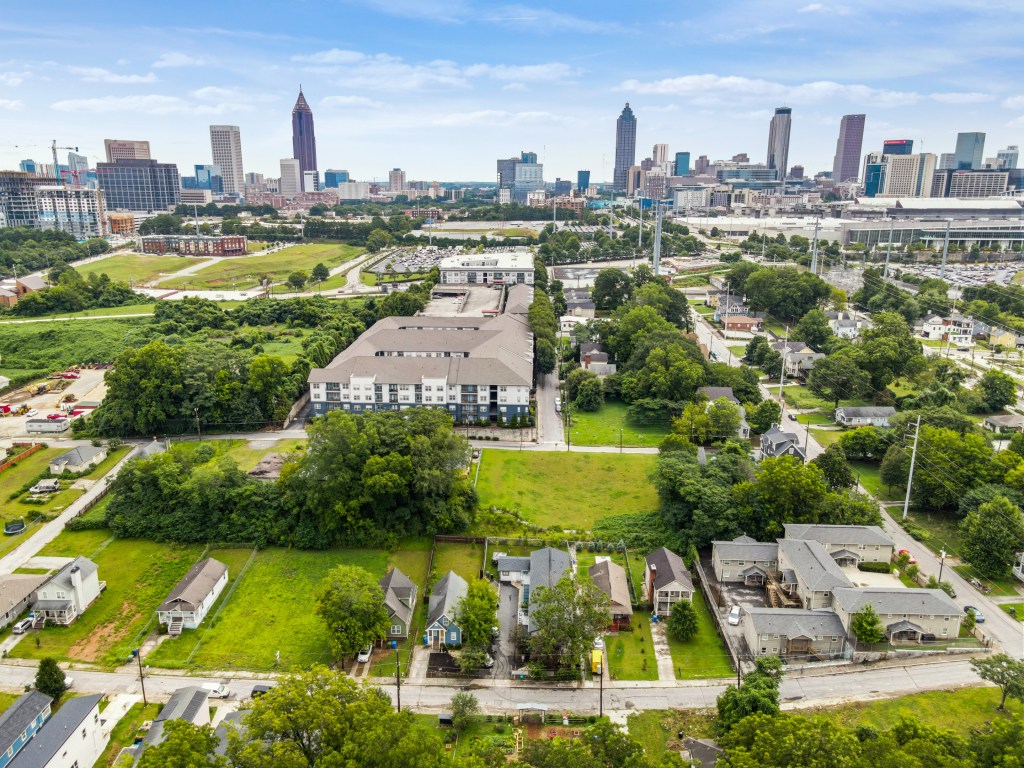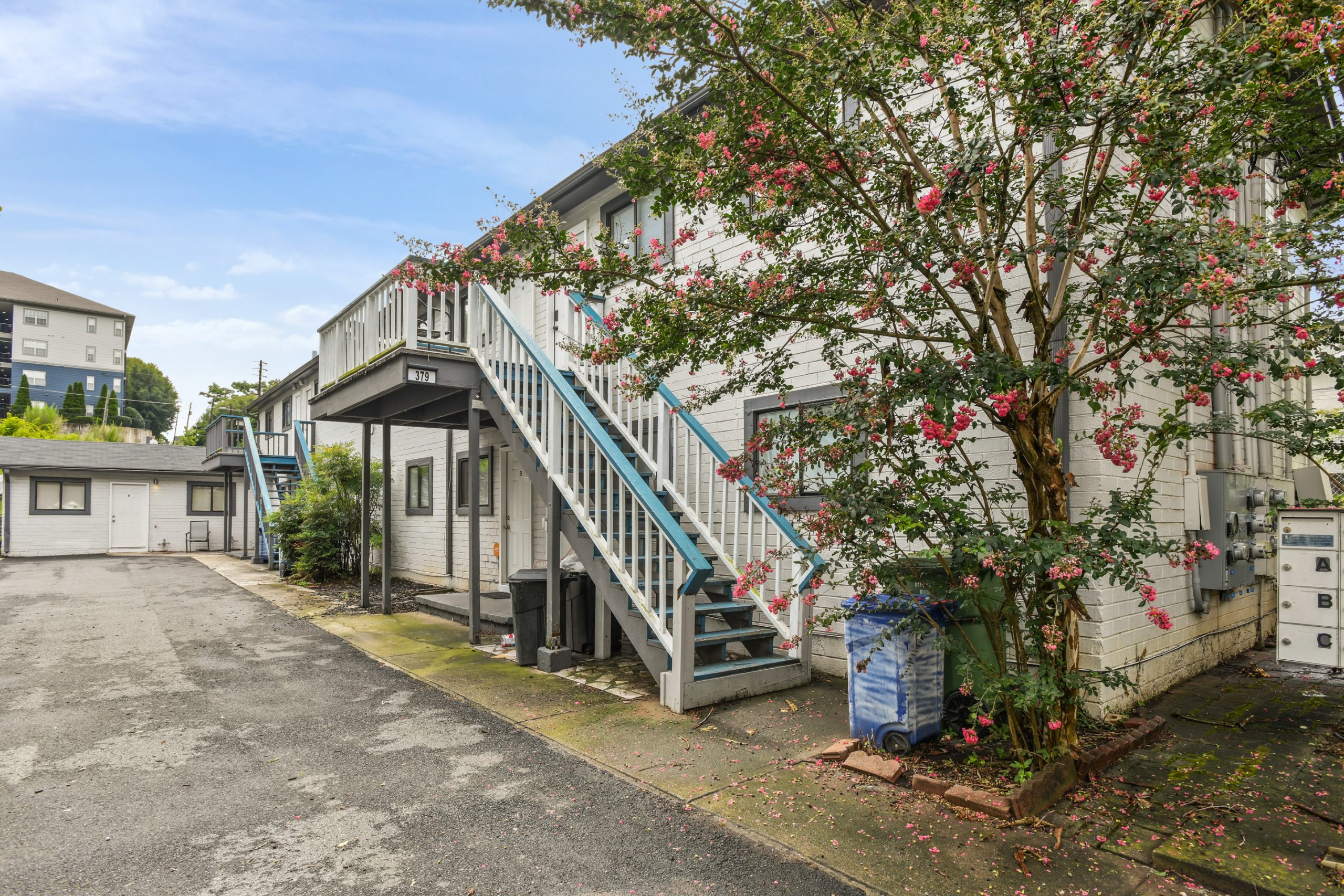When a fledgling nonprofit coalition called the People’s Community Land Trust told tenants living at a small apartment building in the English Avenue community that it had purchased the property and would be lowering rent prices, it seemed too good to be true.
“Everyone was surprised at our first tenant meeting when we said, ‘Yeah, your rents are going to be decreased,’” said Nikishka Iyengar, the founder of real estate advocacy group The Guild, which is a member of the new land trust.
“Everyone was like, ‘What’s the catch?’” she recalled at a Wednesday press conference.
But there is no catch. That’s how community land trusts are supposed to work: A local nonprofit buys land—with either existing residential buildings or space for new construction—and leases or, more often, sells the housing on it at affordable prices.
However, it’s far more common for land trusts to deploy this model for houses, not apartments, like the People’s Community Land Trust is doing. The group formed last August as a collaboration between The Guild, Housing Justice League, and the American Friends Service Committee’s Atlanta Economic Justice Program.
Last month, the land trust finalized the purchase of 379 Elm Street, a nine-unit apartment building a few blocks northwest of Mercedes-Benz Stadium. The organization paid $1.5 million to buy it from a private landlord which it says had routinely raised rent when leases expired—and evicted tenants who couldn’t afford the price hikes.
“These smaller properties are a really important source of naturally occurring affordable housing in the city of Atlanta,” said Zach Murray, an organizer with The Guild. He sees preserving them as vital to offsetting the city’s swell of luxury development and investor activity.

Until now in Atlanta, the innovative land-trust housing model had been championed primarily by the Atlanta Land Trust, which exclusively buys single-family properties to sell to lower- and middle-income residents. The goal is to foster wealth creation where it might otherwise seem impossible.
The People’s Community Land Trust’s approach, however, reflects a national shift among land trusts toward providing affordable rental housing, too. It’s a welcome addition to the local housing ecosystem, Atlanta Land Trust executive director Amanda Rhein said in an interview Wednesday.
“The People’s Community Land Trust and the organizations that created it are really on the ground,” she said. “They are in constant conversations with folks who are struggling with their landlords or facing other housing insecurity.”
The three renters now living at 379 Elm St. pay on average $1,300 monthly for two-bedroom units. But as the current occupants’ leases come up for renewal, and when additional tenants move into the nine-unit building, the land trust intends to reduce the rents. It aims to make units affordable to households earning just 30% of the area median income—or about $29,000 for a family of four.
Not the silver bullet
The new land trust’s leaders recognize that their efforts are a drop in the bucket in the bid to stem Atlanta’s housing affordability crisis.
“We’re not going to be able to scoop up all these spaces in a year to meet the need,” said Alison Johnson, the executive director of the nonprofit Housing Justice League, during the press conference. That’s why public support is crucial.
The People’s Community Land Trust intends to lobby the city of Atlanta to dip into its affordable housing trust fund to finance additional property acquisitions. It’s also urging state lawmakers to support tenant-protection legislation, such as House Bill 404, that would make stable housing more accessible to lower-income people and guarantee “habitability” at rental properties.
The coalition also hopes to secure an Atlanta Housing contract to allow Section 8 rent voucher recipients to live at the Elm Street property.
If the nascent nonprofit grows according to plan, it will be buying additional residential properties in gentrifying Atlanta areas to safeguard them from the city’s speculative housing market, which is rife with corporate investors.
“There has been an investor takeover of our housing in Atlanta,” Iyengar noted at the press conference. “Since 2021, one in three homes in metro Atlanta has been purchased by investors.”
Foluke Nunn, a community organizer with the American Friends Service Committee, added that the new land trust coalition’s members are planning trips to Boston and Oakland to study similar land trust models and learn how to scale up their own.



Thank you!